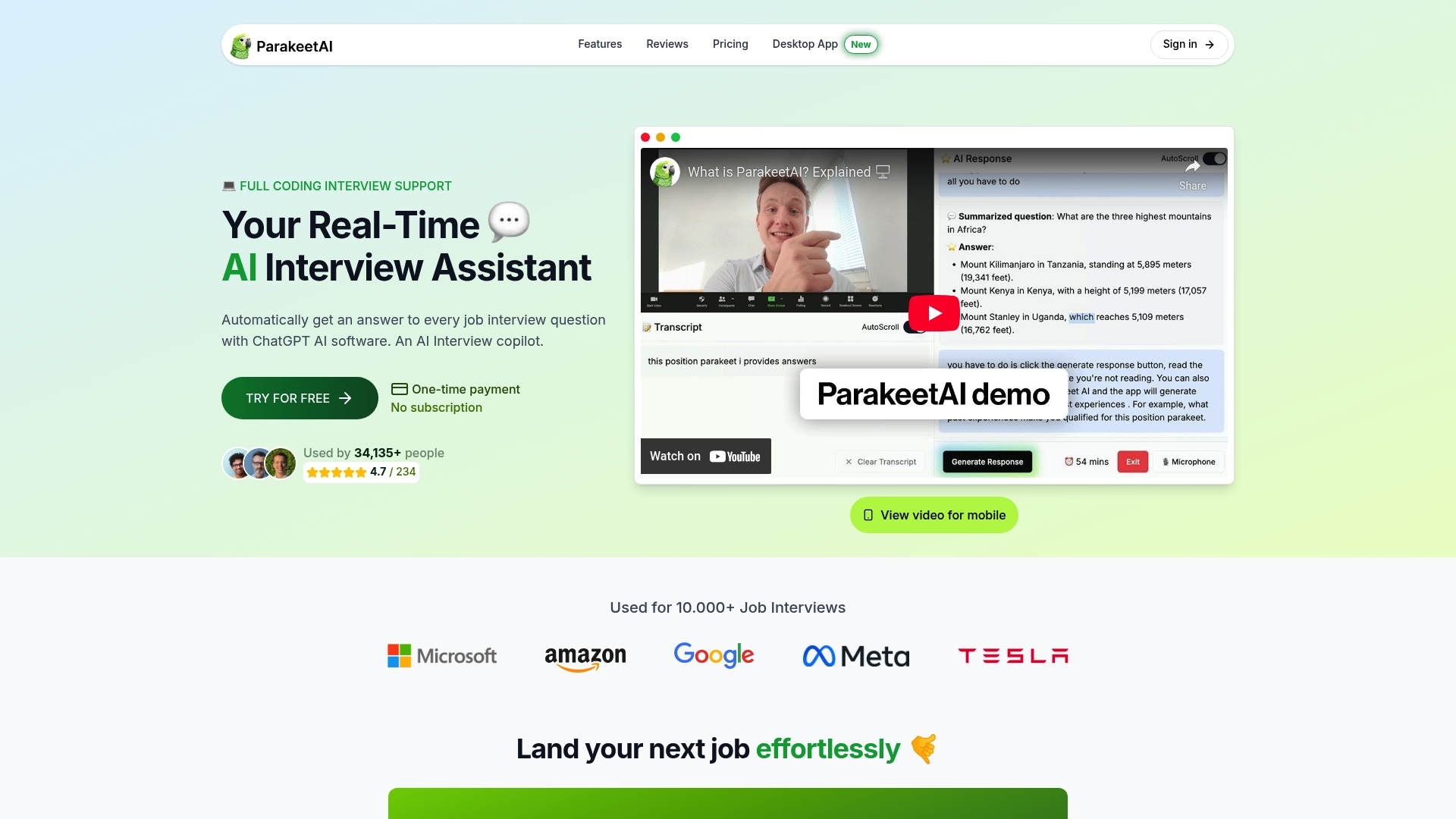Understanding the Guide to Answering Interview Questions

Interview questions shape every step of the hiring process and can make or break a candidate’s future. Most people focus just on technical skills, thinking that’s what matters most. But according to recent research, about 67 percent of hiring decisions come down to how well you communicate and fit within the company culture. There is way more happening beneath the surface of a simple question than people realize.
Table of Contents
- What Are Interview Questions And Their Purpose?
- Why Answering Interview Questions Effectively Matters
- How Interview Questions Gauge Candidate Fit
- Key Concepts In Creating Effective Responses
- Real-World Applications Of Interview Answer Strategies
Quick Summary
| Takeaway | Explanation |
|---|---|
| Interview questions assess candidate fit. | They evaluate professional skills, cultural alignment, and long-term potential within organizations. |
| Effective responses showcase communication skills. | Articulate answers reveal a candidate’s emotional intelligence and problem-solving capabilities, beyond just technical knowledge. |
| Prepare for diverse question types. | Familiarize yourself with behavioral, situational, and technical questions to craft strategic responses. |
| Provide specific examples in responses. | Use concrete narratives and measurable outcomes to illustrate your achievements and problem-solving approaches. |
| Adapt to organizational culture in responses. | Tailor your communication style to align with the company’s values and work ethics for better impact. |
What Are Interview Questions and Their Purpose?
Interview questions represent a strategic communication tool used by employers to assess a candidate’s qualifications, skills, and potential fit within an organizational environment. These carefully crafted inquiries go far beyond simple information gathering and serve multiple sophisticated purposes in the recruitment process.
Understanding the Core Purpose of Interview Questions
Employers design interview questions to accomplish several critical objectives. The primary goal is to evaluate a candidate’s professional capabilities, technical competencies, and interpersonal skills. Through strategic questioning, hiring managers aim to:
- Verify the accuracy of information presented in a candidate’s resume
- Assess problem solving and critical thinking abilities
- Determine cultural and team compatibility
- Understand a candidate’s career motivations and professional trajectory
According to LinkedIn’s Talent Solutions Research, effective interview questions are carefully constructed to reveal insights about a candidate that cannot be gleaned from traditional application materials.
Types of Interview Questions and Their Strategic Design
Interview questions typically fall into several distinct categories, each serving a unique assessment purpose.

Behavioral questions explore past professional experiences and predict future performance. Situational questions present hypothetical scenarios to evaluate decision making skills. Technical questions assess specific professional knowledge relevant to the role.
ParakeetAI’s interview preparation guide can help candidates understand how to navigate these diverse question types effectively. By recognizing the strategic intent behind each question type, job seekers can craft more compelling and authentic responses that showcase their true professional potential.
Below is a table summarizing the main types of interview questions and their strategic assessment focus to help job seekers understand what each question aims to reveal.
| Question Type | Purpose | What Employers Assess |
|---|---|---|
| Behavioral | Explore past experiences and actions | Predict future behavior/performance |
| Situational | Present hypothetical scenarios | Evaluate decision making and problem solving |
| Technical | Test role-specific professional knowledge | Examine expertise and practical skill level |
Ultimately, interview questions function as a sophisticated assessment mechanism, allowing employers to transform a brief interaction into a comprehensive evaluation of a candidate’s professional capabilities and potential organizational fit.
Why Answering Interview Questions Effectively Matters
Successful job interviews require more than just presenting accurate information. Effective communication during interviews directly influences an employer’s perception and can significantly impact career opportunities. The ability to answer questions strategically transforms a routine conversation into a compelling personal marketing opportunity.
The Professional Impact of Interview Performance
How candidates respond to interview questions reveals far more than their technical qualifications. Employers evaluate communication skills, emotional intelligence, and problem solving capabilities through these interactions. Articulate and thoughtful responses demonstrate professional maturity and potential leadership qualities.
Research from Harvard Business Review indicates that approximately 67% of hiring decisions are based not just on technical skills, but on a candidate’s ability to communicate effectively and align with organizational culture.
Key Dimensions of Effective Interview Responses
Effective interview responses encompass multiple critical dimensions:
- Clarity and conciseness in communication
- Authentic representation of professional experiences
- Ability to connect personal achievements to potential organizational value
- Demonstrating adaptability and continuous learning mindset
- Showcasing problem solving skills through narrative examples
ParakeetAI’s interview preparation guide provides advanced strategies for transforming standard interview interactions into powerful professional storytelling opportunities. A well-crafted response can distinguish a candidate from numerous competitors, turning an interview from a potential screening process into a meaningful professional dialogue.
This table outlines the key dimensions that contribute to effective interview responses for candidates aiming to make a strong professional impression.
| Dimension | Description |
|---|---|
| Clarity and conciseness | Communicate ideas simply and directly |
| Authentic representation | Share genuine experiences and true achievements |
| Linking achievements to value | Connect personal accomplishments to the employer’s potential benefits |
| Adaptability and learning mindset | Show willingness and ability to grow and respond to new challenges |
| Problem solving through examples | Illustrate skills by narrating real problem-solving situations |
Ultimately, mastering interview questions is not about providing perfect answers, but about presenting oneself as a dynamic, thoughtful professional who can add genuine value to an organization.
How Interview Questions Gauge Candidate Fit
Interview questions serve as sophisticated diagnostic tools that help employers determine whether a candidate will seamlessly integrate into their organizational ecosystem. Beyond simply assessing technical skills, these inquiries explore deeper dimensions of professional compatibility, team dynamics, and potential long term contribution.
Evaluating Organizational and Cultural Alignment
Employers recognize that technical competence alone does not guarantee success. Cultural fit has become increasingly critical in modern workplace environments. Interview questions strategically probe a candidate’s values, work philosophy, and interpersonal approach to determine potential synergy with existing team structures.
According to MIT Sloan Management Review, organizations that prioritize cultural alignment experience 30% lower employee turnover rates and significantly higher team productivity.
Multidimensional Assessment Strategies
Modern interview questions are designed to evaluate candidates across multiple interconnected dimensions:
- Professional adaptability and learning potential
- Emotional intelligence and communication skills
- Problem solving approach and critical thinking capabilities
- Personal motivation and career trajectory alignment
- Resilience and stress management capabilities
ParakeetAI’s interview preparation guide can help candidates understand the nuanced strategies behind these comprehensive assessment techniques. Recognizing the holistic nature of these evaluations enables job seekers to present themselves as well rounded professionals.
Effective candidate fit assessment goes beyond matching skills to job descriptions. It involves understanding an individual’s potential to grow, contribute, and thrive within a specific organizational context, transforming the interview from a simple screening process into a strategic talent acquisition opportunity.
Key Concepts in Creating Effective Responses
Crafting compelling interview responses requires more than reciting predetermined answers. It involves strategic communication that demonstrates professional insight, self awareness, and the ability to articulate complex experiences with clarity and purpose.
The Architecture of Powerful Interview Responses
Effective interview responses are carefully constructed narratives that go beyond mere information delivery. They transform personal professional experiences into strategic communication tools that showcase an individual’s unique value proposition. The most impactful responses blend concrete examples, reflective thinking, and forward looking perspectives.
According to Stanford Graduate School of Business Research, professionals who structure their responses using clear narrative frameworks are 40% more likely to be perceived as credible and competent.
Core Components of Response Excellence
Successful interview responses typically incorporate several critical elements:
- Specificity in describing professional experiences
- Clear demonstration of problem solving approach
- Quantifiable achievements and measurable outcomes
- Reflection on personal growth and learning
- Alignment with potential employer’s strategic objectives
ParakeetAI’s interview preparation guide offers advanced techniques for developing nuanced response strategies. Understanding these fundamental components transforms interview responses from basic information sharing to compelling professional storytelling.
The following table presents important statistics and research findings cited in the article to highlight factors that influence interview outcomes and hiring decisions.
| Statistic / Research Finding | Source |
|---|---|
| 67% of hiring decisions are based on communication and cultural fit | Harvard Business Review |
| 30% lower turnover with strong cultural alignment | MIT Sloan Management Review |
| 40% increased perceived competence with structured narrative responses | Stanford Graduate School of Business |
| 35% greater job advancement for strong contextual communication skills | Harvard Business Review |
Ultimately, creating effective interview responses is an art of strategic self presentation. It requires candidates to view each question as an opportunity to demonstrate their professional narrative, potential for growth, and unique contribution to an organization’s success.
Real-World Applications of Interview Answer Strategies
Interview answer strategies transcend theoretical concepts, becoming practical tools that professionals leverage across diverse career landscapes. These sophisticated communication techniques enable candidates to transform standard interactions into powerful opportunities for professional positioning and personal brand development.
Contextualizing Strategic Communication
Professional environments demand nuanced communication skills that go beyond generic response templates. Effective interview strategies involve adapting communication approaches to specific organizational cultures and industry expectations. This adaptive communication model requires candidates to understand the underlying dynamics of different professional contexts and tailor their responses accordingly.
Research from Harvard Business Review reveals that professionals who demonstrate contextual communication intelligence are 35% more likely to advance in competitive job markets.
Practical Implementation Across Professional Domains
Strategic interview response techniques find application across multiple professional scenarios:
- Technology sectors requiring complex problem solving narratives
- Creative industries demanding innovative communication approaches
- Healthcare environments emphasizing empathy and systematic thinking
- Financial services valuing precision and analytical communication
- Startup ecosystems seeking adaptable and dynamic professionals
ParakeetAI’s interview preparation guide offers comprehensive insights into translating these strategic communication principles across different professional contexts. Understanding how to adapt communication strategies becomes a critical skill in navigating diverse professional landscapes.

Ultimately, mastering interview answer strategies is about developing a sophisticated communication toolkit that allows professionals to present their most authentic and compelling professional narrative, regardless of the specific industry or role they are pursuing.
Ready for Interview Questions That Show Your True Value?
Struggling to turn tough interview questions into strong opportunities for success is a common challenge. The article explained that authentic answers, strategic communication, and clear professional storytelling matter most. Yet, staying calm and saying the right thing in real-time can feel overwhelming when you know a single answer could change your future. If you ever worry about communicating your experience clearly, missing key details, or freezing when faced with challenging situational or behavioral questions, you are not alone. Many job seekers wish for reliable, immediate interview support that adjusts to every question and every context.

Now you can get the advantage of real-time professional help with ParakeetAI’s interview assistant. Our AI listens and automatically generates personalized responses so you can give clear, impactful answers every time. You can also explore the ParakeetAI main site for guidance and discover powerful interview strategies tailored to your goals. Stop letting stress or uncertainty hold you back. Try ParakeetAI today and experience confident, effective interview communication when it matters most.
Frequently Asked Questions
What are the main purposes of interview questions?
Interview questions are designed to evaluate a candidate’s professional capabilities, verify information from resumes, assess problem solving skills, determine cultural fit, and understand career motivations.
How can I effectively answer behavioral interview questions?
To effectively answer behavioral interview questions, structure your responses using the STAR method (Situation, Task, Action, Result) to provide clear, concise examples of your experiences.
What should I focus on when answering situational interview questions?
When answering situational interview questions, emphasize your decision-making process, demonstrate critical thinking, and relate your responses to potential workplace scenarios relevant to the job.
How important is communication during an interview?
Effective communication is crucial during an interview, as it not only conveys your technical qualifications but also reflects your emotional intelligence, problem-solving abilities, and alignment with the organization’s culture.




